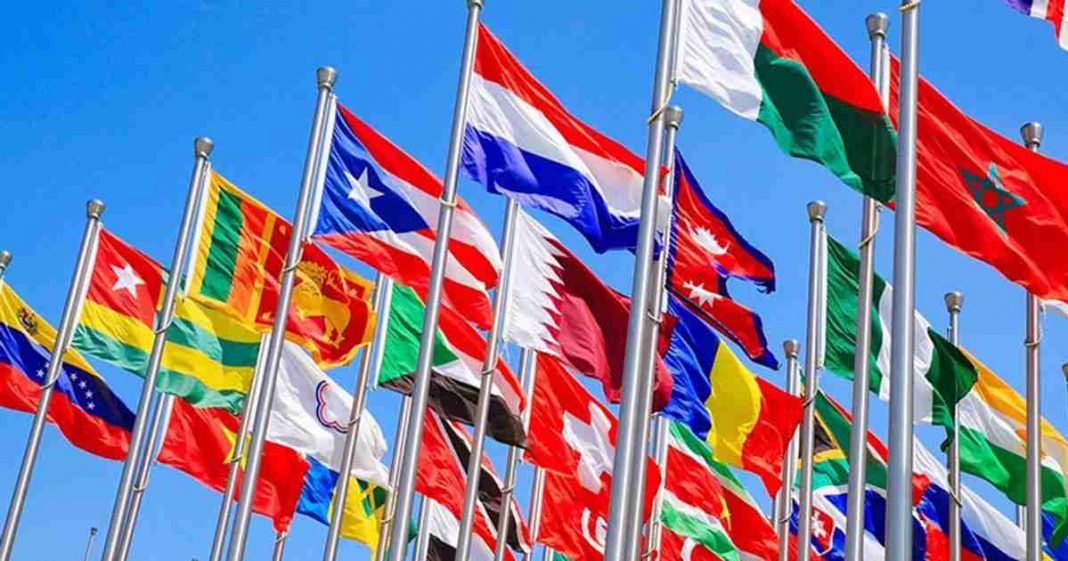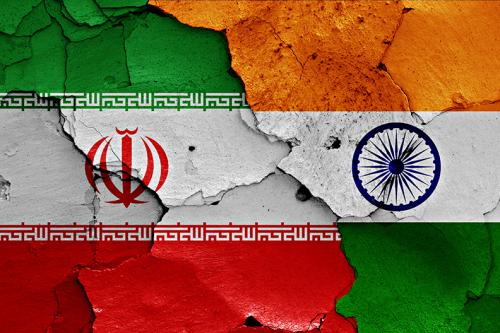Branding is the meticulous creation and cultivation of a unique, distinct and separable identity in the public’s consciousness. Branding – of individuals, corporate entities and nation-states – has become imperative for robust image projection in today’s dynamic world.
Crafting a brand is a tedious and long-drawn task. Individuals leverage social media to create a unique persona, while body corporates spend excessively on advertisements and public relations to create positive impressions – thereby creating a brand for themselves.
However, contrary to popular belief, the most carefully constructed brands in our times do not belong to celebrities or consumer brands; this title has rightfully been earned by nation-states.
Read more: Will re-branding Islam work for Saudi Arabia?
Country branding: the art of selling a country
A cursory glance can help identify each nation-state’s “brand”. Indeed, the cold war of the 20th century – the current Sino-US rift, can be reduced to a war of brands. One nation-states ‘brand of economy’ competing with the others; ‘brand of human development’ wrestling with the others; ‘brand of governance’ outdoing the others.
The rugged and individualistic capitalism espoused by the United States, the (gradually declining) neo-liberal, collectivistic and multilateral approach championed by Europe, the economic interventionism of China and the welfare state ideals adopted by the Nordic states all stand as proof of the existence of unique and competing brands of nation-states.
Needless to say, this branding needs to be backed up by empirical, on-ground realities and actions; otherwise, it risks drawing international shame and embarrassment similar to what India is experiencing nowadays as domestic hostilities continue to belie claims of a functioning democracy.
Brilliant @LodhiMaleeha "Today, ‘nation branding’ is essential. Policymakers should identify and imaginatively incorporate our soft power resources into our foreign policy, engaging more vigorously in public diplomacy to shape the narrative abroad." https://t.co/2YWab1fbLj
— Rabia Akhtar (@Rabs_AA) April 9, 2020
Pakistan’s national brand in dire need of an overhaul
It is about time Pakistan too ventured on a soul searching sojourn to understand and locate its own niche. Pakistan has, for far too long, adopted an overtly militaristic, rent-seeking brand. Whether that has benefited Pakistan or not, and whether the geo-political environment warranted its adoption at the time of independence, is a debate for another day. Yet, the need to periodically update this brand has never been more severe.
Read more: Pakistani cities need serious branding, and social media can help – Dr. Laeeq Khan
Even, continuing with the current brand, requires an appraisal. War itself has iterated into its fifth generation, making it more protracted and multi-faceted than ever. Indeed, it is a pressing need of the time to conduct a holistic re-appraisal to update Pakistan’s national priorities.
The only brand that provides a sustainable path is one that is centred on sustainable economic growth and ethnic and religious inclusivity. This not only ensure human capital development, but will also ensure Pakistan’s promotion in the geopolitical calculus. Even if one was to look at it from a strictly security-oriented lens, an emaciated economy increasingly dependent on external handouts, and a fractured ethnoreligious social fabric – Pakistan has become a fertile ground for foreign exploitation which makes for an extremely compromised and difficult proposition for Pakistan’s security agencies.
Pakistan’s brand needs to focus internally to source its legitimacy. The state needs to encourage entrepreneurship, promote business-friendly policies, facilitate trade and reform its tax bureaucracy to collect a fair share of revenue. Pakistan cannot live consistently beyond its means and then complain about a relegated role in the international community and a compromised foreign policy.
Amid disharmony between provinces, can Pakistan reinvent itself?
The other pillar of the proposed brand is also closely linked to the above. None of these goals can be met when there is discord and disharmony between provinces, ethnicities and religious groups. That the majority of our population is busy issuing verdicts on rival groups’ patriotism and religiosity is a proof of Pakistani’s spending their time and energy in futility.
Read more: Saudi-led alliance: Pakistan must make independent decisions for its own national interest
After all, it is the people who will ultimately have to engage in productive enterprise, create wealth and transfer a fraction of it to the state as tax. A peaceful and safe society is a pre-requisite for economic activity – the recent turn around seen in Karachi after the 2015 operation serving as a pertinent example.
Pakistan needs to ensure it finds and adopts a sustainable niche for itself as soon as possible. It also needs to ensure this ‘brand’ is followed up by tangible and palpable action. The market for finding a ‘brand’ for nation-states is saturating quickly. The last thing Pakistan needs is an expired brand. Pakistan needs to move fast.
Rafay Ashraf is a graduate of Lahore University of Management Sciences (LUMS). He majored in Social Policy and Public Management as his majors. He can be reached at rafayashraf111@gmail.com.The views expressed in this article are the author’s own and do not necessarily reflect the editorial policy of Global Village Space.














